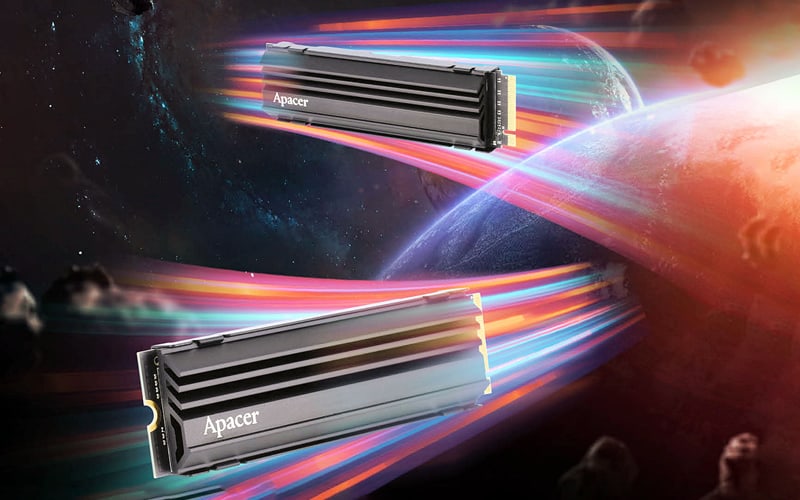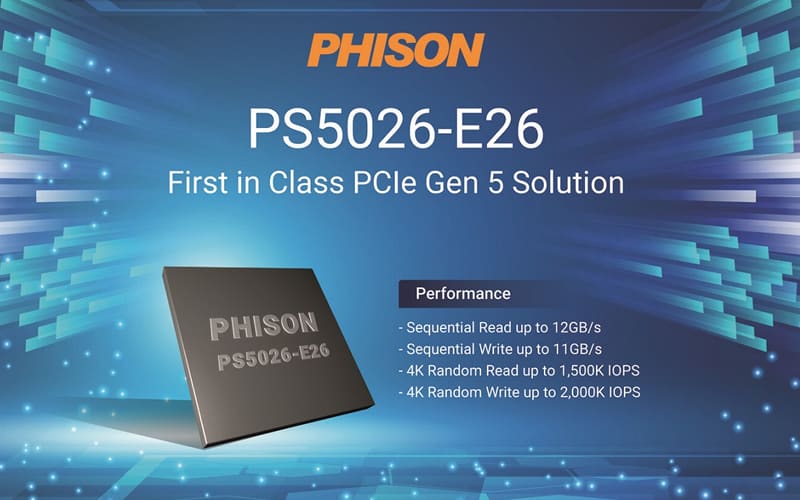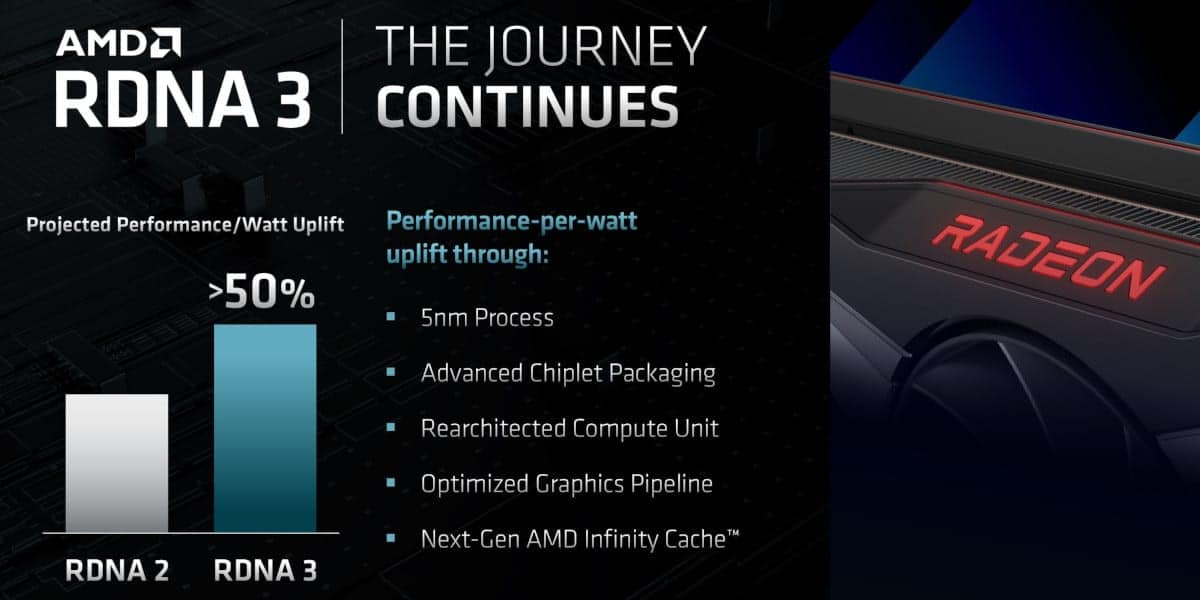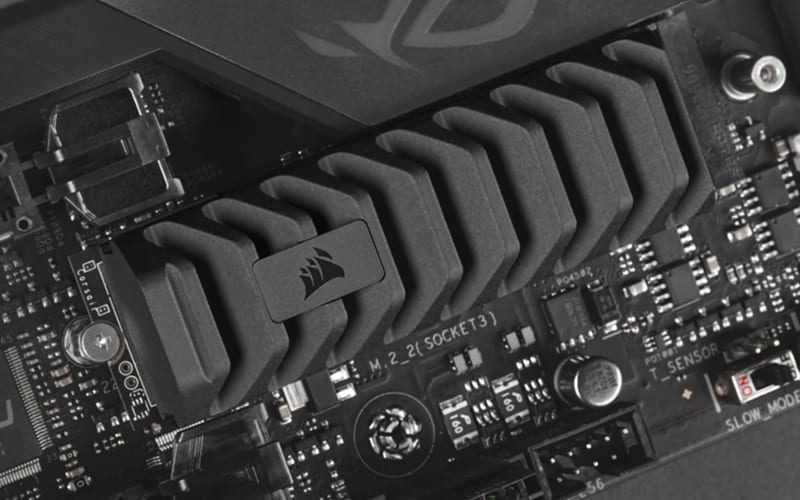Last Updated on
Now that Raptor Lake and Ryzen 7000 series processors have been released, support for PCIe Gen 5.0 SSDs is now firmly underway. We’re bringing you everything you need to know about the latest ultra-fast NVMe M.2 models.
Remember, there are some amazing 4.0 SSDs on sale right now as part of Black Friday. You can see all the latest SSD Black Friday deals right here – or, to save time, we’ve cherry-picked some of our favorites below.
LATEST SSD deals:
- Crucial – MX500 4TB Internal SSD SATA, $269.99 (save $80)
- WD_BLACK 1TB SN850X NVMe Internal Gaming SSD Gen4 PCIe, $124.99 (save $35)
- SAMSUNG 980 SSD 1TB PCle 4.0 NVMe M.2 SSD, $108 (save $11)
- Western Digital 1TB WD Blue SA510 SATA Internal SSD, $69.99 (save $30)
Now that the compatible AM5 socket and Z790 motherboards have hit shelves both real and virtual, it shouldn’t be long for PCIe Gen 5.0 SSDs to begin shipping. Fortunately, we’ve seen a little more action on the storage front from some of the biggest names in the industry, so there’s a lot to look forward to.
We’re bringing you all the information on where to buy PCIe Gen 5 SSDs where you are. If you want to be up to speed on the emerging standard for gaming and data transfer then keep reading down below.
This includes Asus, Crucial, MSI, Sabrent, Gigabyte, Seagate, and PNY, among others that we’ll detail below. We’ve rounded up all the best retailers to get yourself one of the first Gen 5 SSDs when the next chipset generation is upon us.
We’re going to be seeing unparalleled sequential performance compared to what’s been possible with Gen 4×4. PCIe 5.0 will offer exceptional rates of up to 13,000 MB/s read and 12,000 MB/s write, which is 60% faster than some of the best NVMe SSDs out right now.
Now, the first PCIe 5.0 Gen 5 SSDs will work with current-gen Intel processors, and the upcoming Raptor Lake, too. So things aren’t limited to Zen 4. If you’re at a crossroads of which processor gen to buy, our Ryzen 7000 vs Raptor Lake feature will bring you up to speed.
PCIe Gen 5.0 SSDs release date
The first PCIe Gen 5.0 SSDs should begin to roll out soon now that the Ryzen 7000 series and Raptor Lake have dropped. It’s currently unknown exactly which models will roll out towards the end of the year, but we’re bringing you all that you know so far. We’re frequently updating the page, too, so when we know more, you will as well.
A few Gen 5.0 SSDs have been unveiled ahead of the event and these are the models we’re going to be focusing on. These include the Apacer AS2280F5, Corsair MP700, and Zadak TWSG5. All of these models are pushing the boundaries of the new tech straight out of the gate. We’ve also now got the confirmed existence of the Gigabyte AORUS Gen5 10000 SSD, too.
We’ll be bringing you more confirmed models as they roll out ahead of the release. More established brand storage names are on the way. For example, the Samsung 990 Pro is truly on the bleeding edge of Gen 4.0. That’s a pretty good indication that a successor ready for the latest is on the horizon, too, if the jump between the 970 and 980 years ago is anything to go by.

PCIe Gen 5.0 SSDs potential prices
No official pricing has been stated for the PCIe Gen 5.0 SSDs we’re featuring, however, it’s likely to remain largely in line with top-end Gen 4.0. For instance, the Corsair MP600 Pro LPX, the brand’s current flagship, carried an MSRP of $370 at release. Based on this, we can estimate that many high-performing models will hover around the $350 – $400 mark depending on the manufacturer. We’ll be bringing you more as we learn.
Where to buy PCIe Gen 5.0 SSDs
Apacer AS2280F5 expected retailers
US
UK
Canada
Corsair MP700 expected retailers
US
UK
Canada
Gigabyte Aorus Gen5 10000 SSD
US
UK
Canada
Zadak TWSG5 expected retailers
US
UK
Canada

How fast will PCIe Gen 5.0 SSDs be?
PCIe Gen 5.0 SSDs will have read and write speeds of up to 13,000 / 12,000 MB/s respectively. As a frame of reference, the current standard for NVMe drives, Gen 4.0, maxes out at around 8,000 MB/s. This is an increase of around 60% and consistent with the jump we saw between the previous generations. This is achieved through NVMe 2.0, significantly faster than NVMe 1.4.
We’ve actually gotten some industry-standard figures from upcoming drives from the announcement of the MSI SPATIUM M460. The manufacturer has been transparent enough to showcase genuine CrystalDiskMark figures to demonstrate actual performance.
Here’s what the reported numbers are from the company’s own website:


As you can see from the product shot above, the heatsink affixed to MSI’s new Gen 5.0 SSD is significantly chunkier than what we typically see from Gen 4.0 drives. Although some companies do put thicker heat shields on their SSDs, you can get away with a low-profile graphene alternative that does the job. That isn’t the case with Gen 5.0, though, as we’ve touched on below.
Will PCIe Gen 5.0 SSDs require thicker heatsinks?
It’s been confirmed by a representative from Phison that PCIe 5.0 SSDs could run significantly hotter than previous models. Because of this, thicker heatsinks could be needed than what we typically see accompanying motherboards or aftermarket solutions at the moment. Active cooling could be in question, as suggested by the ElecGear M.2 2280 SSD Cooler.
It’s worth noting that Gen 4.0 NVMe SSDs ran hotter than their older Gen 3.0 equivalents. In a report published by WCCFTech, the company claimed that while it heavily recommended a heatsink for Gen 4.0 drives, a heatsink for the upcoming generation is essential to avoid thermal throttling or damage.
What controllers will Gen 5.0 SSDs use?
Arguably the biggest name in upcoming Gen 5.0 SSDs is the Phison E26. This company is responsible for some of the fastest NVMe drives on the market with its existing E18 controller, so the anticipation for 5×4 compatibility shouldn’t be overlooked. Also of note are the Silicon Motion MonTitan, Microchip Flashtec NVMe 4016 PM8667, and Marvell Bravera SC5 MV-SS1333.
These are just a few controllers that we know about, with more sure to come powering the newest line of storage drives. We’re confident that manufacturers such as Western Digital and SK Hynix will have their own developed in-house controller, too.
Are NVMe SSDs better than SATA?
You can expect your average SATA SSD to deliver around 600 MB/s of sequential reads and writes. In contrast to this, the upcoming PCIe Gen 5 SSDs, which are built upon NVMe 2.0, can deliver up to 20x the performance. What’s more, NVMe SSDs are significantly smaller and can be installed directly onto your motherboard.
The major advantage that SATA models have is price-per-gigabyte. Gen 5.0 SSDs will be expensive, especially in higher configurations such as 2TB and 4TB.



